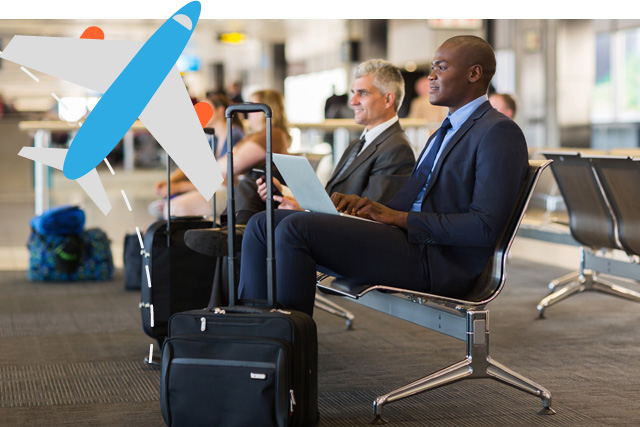
Traveling abroad is always exciting, even if it’s just for a short business trip. Anyone given the opportunity to visit a city and explore a culture different from their own will surely jump at the chance. However, the one universal complaint shared by virtually every traveler is the high cost of staying connected. Phone service is a necessity in life, but it’s also something everyone complains about either because of the poor service or the unreasonably high cost, especially when you’re paying separate fees for your mobile device and home phone service.
10 Tips for Traveling with Your Gadgets
Why It Doesn’t Make Sense to Depend on One Air Travel Search Site for the Lowest Prices
If you’re traveling abroad, it gets even worse. Those who fail to keep track of their plan and usage details when abroad are routinely hit with bills in the several-hundred-dollar range. Though less common, $1,000 bills aren’t as rare as one would hope either, especially if your trip lasts longer than a week. So how can consumers protect themselves from the highway robbery that is wireless service when traveling abroad?
Local Service
The simplest option is to sign up for service at your travel destination. Most airports have local wireless service provider kiosks where travelers can purchase minutes and a data plan for their phone to avoid accruing substantial charges on their main line. For this to work, you’ll need an unlocked phone that’s compatible with the network technology in the country you’re visiting. Most new phones follow the Global System for Mobile Communications (GSM) standard, so they should be compatible with international networks. You’ll also receive a different number from your main line, which means it’ll be difficult for others to keep in touch. As a solution, consumers can set their home phone to forward calls to their temporary number.
Voice over Internet Protocol Service (VoIP)
The second option is using a service that allows you to make calls over the Internet. This is certainly the better option because it’s free. All that’s needed is a high-speed Internet connection and an app to make the call. With 40 percent of the global population connected to high-speed Internet, including most of the developed world, according to Internet Live Stats, finding a Wi-Fi signal over which to send and receive phone calls and text messages shouldn’t be difficult. While this option will reduce your need for your main line, it is limited by the availability of high-speed Internet and your contact information will be different from your main line.
VoIP as Your Primary Service
Use a VoIP service for your daily needs to avoid a change in number or any other complications when searching for the cheapest way to stay connected while traveling. In lieu of traditional landlines, receiving home phone service over high-speed Internet is increasingly the more popular option. Not only is it cheaper, it’s more customizable and more reliable. When you use a VoIP service for your home phone, you can transfer the home number to your mobile device when you’re away just as long as you’re connected to high-speed Internet. Therefore, when traveling abroad, you can continue to make and receive calls without worrying about the expense of international calling charges or making sure everyone has the right contact number.
VoIP as your primary service isn’t just about saving money when traveling. It’s a new way to approach telecommunication in the 21st century. The savings, both when traveling and in day-to-day costs, is an added bonus that makes ditching the land line an even smarter choice.